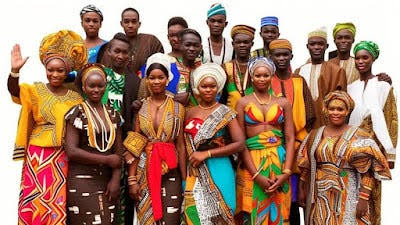Culture plays pivotal role in shaping education systems around world. Nigeria is no exception. With its rich and diverse cultural heritage Nigeria's educational landscape is deeply intertwined with traditional beliefs. Practices and societal norms. This article explores how culture influences education in Nigeria. Examining both positive aspects that enhance learning. The challenges that arise from cultural diversity.
Nigeria is home to over 250 ethnic groups each with its unique cultural practices, languages and traditions. This diversity is reflected in every aspect of Nigerian society. Including education From Hausa-Fulani in the north to Yoruba in the southwest. And the Igbo in the southeast cultural diversity permeates educational experiences of Nigerian students. And educators alike.
Cultural values and traditions often enrich educational experience in Nigeria. Many schools incorporate local languages and cultural practices into their curriculum. This fosters a sense of pride and identity among students. For example schools in Yoruba-speaking regions may teach subjects in both Yoruba and English. This allows students to learn in their native language while also mastering national language.
Moreover, cultural celebrations and festivals provide opportunities for students to learn about their heritage firsthand. These events promote cultural awareness, tolerance, and respect among students from different ethnic backgrounds. They also serve as occasions for communal learning, where elders pass down knowledge and traditions to younger generations, reinforcing cultural values that are integral to Nigerian society.
Challenges Arising from Cultural Diversity
While cultural diversity enhances education in many ways, it also presents challenges. One significant challenge is the disparity in educational resources and opportunities across different regions and ethnic groups. Schools in urban areas often have better infrastructure, qualified teachers, and access to educational technology compared to rural schools. This disparity can perpetuate inequalities in educational outcomes based on cultural and socioeconomic factors.
Additionally, conflicting cultural beliefs and practices can sometimes create tensions within the educational system. For instance, debates may arise over the inclusion of certain cultural practices in school curricula or the adaptation of Western educational standards to align with traditional values. Finding a balance between preserving cultural heritage and promoting modern education can be a delicate and complex task for policymakers and educators.
Gender roles and expectations also influence education in Nigeria. Traditional norms may limit educational opportunities for girls, particularly in rural and conservative communities where early marriage and household responsibilities take precedence over schooling. Efforts to promote gender equality in education often face resistance rooted in cultural beliefs about the roles and capabilities of women and girls.
Impact of Language Diversity
Language diversity is another aspect of Nigerian culture that significantly influences education. Nigeria recognizes over 500 languages, with three major languages—Hausa, Yoruba, and Igbo—dominant in different regions. The choice of language for instruction in schools can affect students' ability to learn effectively. While English serves as the official language of instruction, proficiency varies widely among students whose first language may be different.
Efforts to promote multilingual education have been made to address this challenge, with some schools implementing bilingual or mother-tongue-based education programs. These initiatives aim to improve learning outcomes by allowing students to learn in languages they are most comfortable with, thereby enhancing their comprehension and engagement in the learning process.
Cultural Integration in the Curriculum
Recognizing the importance of cultural diversity, Nigerian educational policies emphasize the integration of cultural studies into the curriculum. Subjects such as Civic Education, Social Studies, and History include components that teach students about Nigeria's diverse cultural heritage, historical events, and societal values. By learning about different cultures within the classroom, students develop a broader perspective and appreciation for cultural diversity.
Moreover, extracurricular activities such as drama, music, and art play a crucial role in promoting cultural expression and creativity among students. These activities provide platforms for students to showcase traditional dances, songs, and artworks, preserving cultural practices and promoting intercultural dialogue and understanding.
Conclusion
In conclusion, culture profoundly influences education in Nigeria, shaping curriculum content, teaching methodologies, and educational policies. While cultural diversity enriches the educational experience by promoting identity, tolerance, and mutual respect, it also presents challenges related to resource allocation, gender equity, and language diversity. Addressing these challenges requires inclusive educational policies, equitable resource distribution, and initiatives that celebrate Nigeria's cultural richness while promoting universal access to quality education. By embracing cultural diversity as a strength rather than a barrier, Nigeria can foster an inclusive educational environment that prepares students to thrive in a multicultural society and contribute positively to national development.
